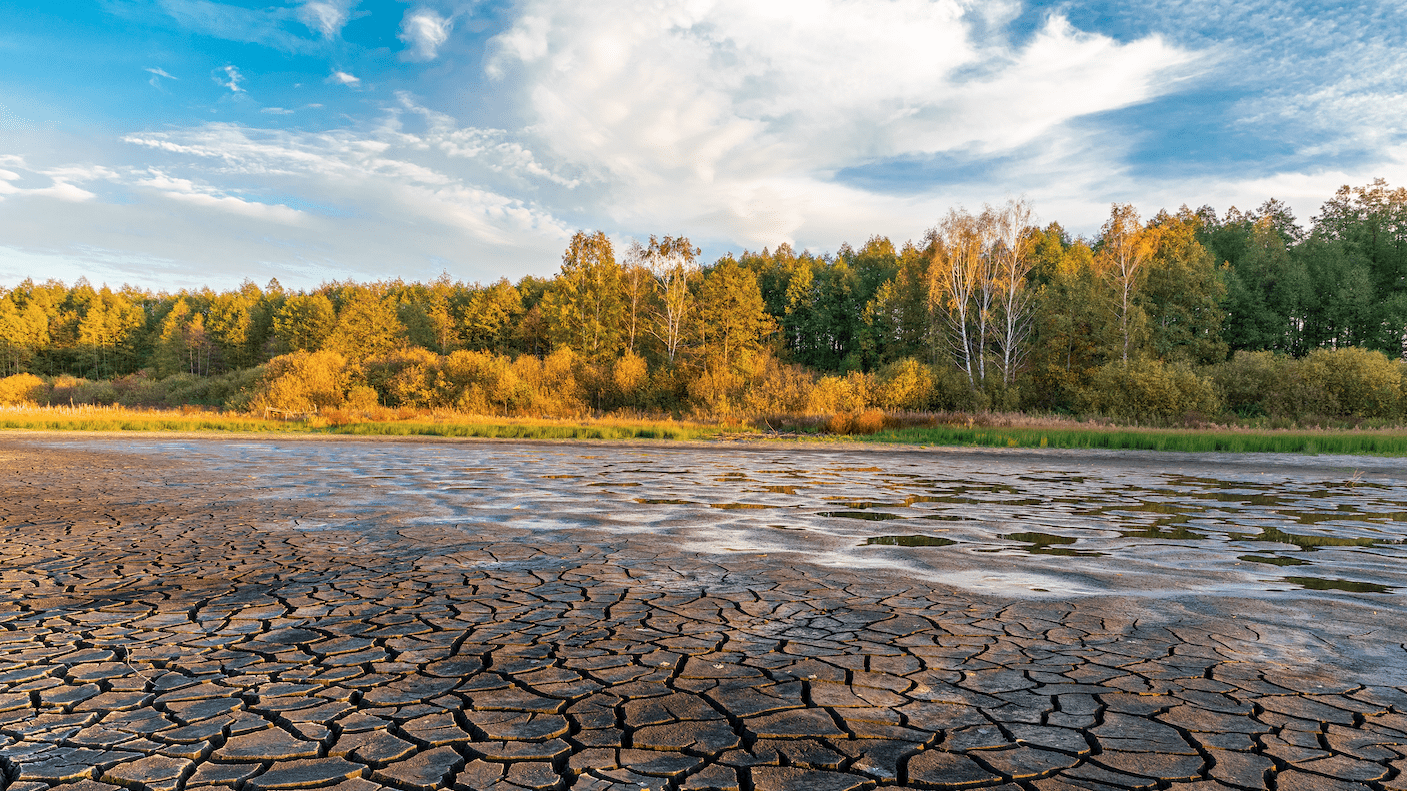The biggest challenge in ground transportation is the requirement of numerous vehicles to move a ship’s cargo. It is also riskier than water transportation, but with the extreme droughts that Europe has faced this summer, reliance on rail and road transport is growing.
Droughts
The challenges in France caused by the drought are getting worse. Transport of river cargo is at peril due to the recent lack of rainfall that has plagued France. According to France Info, the Rhine River’s level is so low that vessels with a capacity of 2500 tonnes are only filled to 900 tonnes to prevent their bottoms from scraping the riverbed.
Even though it is France’s top river port for transporting grains, the port of Metz on the banks of the Mosel, a tributary of the Rhine, has significantly reduced its activity as a result of the situation. France sells more than 2 million tonnes of wheat from there each year to Germany, the Netherlands, and the Benelux countries, but this year the Rhine is particularly low. Storage facilities for grains are full, yet the quantity accumulated cannot be shipped.
Reaction
According to Vincent le Ber, the executive director of Lorca, who spoke to France Info, river freight transit is the most effective method of moving cereals, but it does not operate as it should. As a result, the remaining cargo is moved by rail and road. However, there are a number of issues with that. First off, a cargo ship can typically carry roughly 2000 tonnes, whereas a truck can only carry 30 tonnes. This means that as many as 60 trucks are needed to transfer a ship’s cargo to its destination via land. Le Ber stated that another drawback of road travel is a higher likelihood of road accidents, which are much less common in water transport.
River freight transit is the most effective method of moving cereals, but it does not operate as it should
However, these are not the only issues with transportation across inland waterways. According to Jean-Marc Thomas, manager of CFNR, a company that deals with shipping on the Rhine, the cost of river freight transit has recently soared. According to Thomas, this is the result of Germany’s decision to restart its coal-fired power facilities in order to counteract the potential loss of Russian gas. There is no other option for Germany, so the coal required for such power plants is carried by ships, and the higher demand has inflated the prices.
Projections
The executive projects a 20–25 per cent decrease in river shipping for the months of July and August just in the port of Metz, citing the aforementioned reasons.
CNews noted that the issue does not affect only France. Large German corporations have also raised the alarm, stating that a big disruption of river transportation might further harm an already logistically challenged economy.
Droughts historically impact economies in a negative way. German GDP, for instance, decreased by 0.2 per cent as a result of the 2018 drought, which began as early as February that year, and resulted in the Rhine’s water level in the Kaub district dropping to a mere 25 cm in October, according to statistics from Deutsche Bank Research. The data unequivocally demonstrate the negative economic effects of a drop in inland waterway transportation.
Hungarian Lookout
While Hungary, like any other country, also faces drought due to extreme temperatures this year, it has not affected the economy yet. At the end of June and in July, some cities suffered from a lack of water supply, however, those issues were rather quickly resolved, as they were not related to water scarcity. At one point, the outdated water services infrastructure in some towns could no longer supply sufficient volumes of water, after a rapid rise in water quantities used by residents due to the scorching heat. Solymár, for example, a small town outside Budapest, had to implement water saving measures for its residents. A satellite picture published by Időkép on their Facebook page on 10 August shows a dried out Hungarian landscape, the degradation especially noticeable when compared with the image taken on the same day last year, posted next to it.
It has not affected the economy yet
This is only one of the reasons why all European countries need to strive towards the use of renewable energies and the reduction of their carbon footprint. Hungary is in a prominent position in this respect if compared with other countries in the region. Hungary’s solar power production is one of the highest in Europe and the government is planning to expand the existing nuclear plants, which can also help curb emissions in the future.








